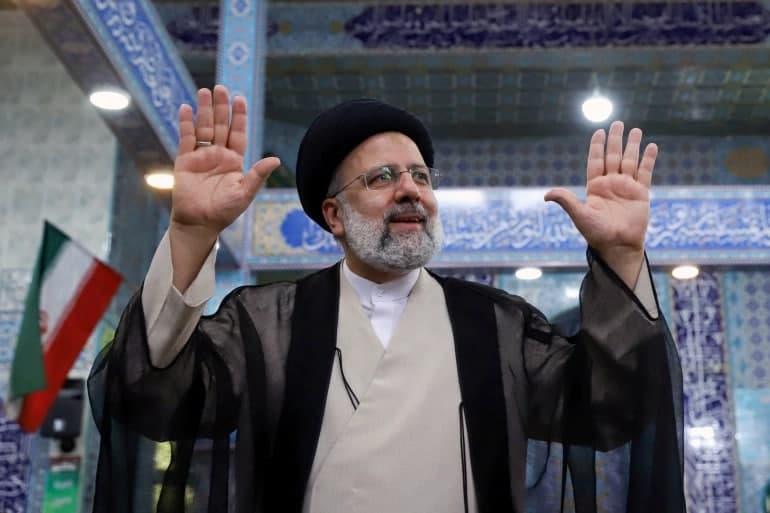Tehran, June 19 (Aljazeera) – Conservative judiciary head Ebrahim Raisi has been elected Iran’s eighth president, the interior ministry has announced.
Former Revolutionary Guard commander Mohsen Rezaei, moderate candidate Abdolnaser Hemmati and conservative candidate Amir Hossein Ghazizadeh Hashemi had conceded ahead of the announcement on Saturday.
Raisi will take office in early August, replacing moderate President Hassan Rouhani who was not allowed by the constitution to run for a third consecutive term.
“I congratulate the people on their choice,” said Rouhani on Saturday.
Raisi’s election marks a consolidation of power by the conservative and hardline camp, which already controls the parliament and will likely have a replacement for the judiciary as well.
The Muslim scholar, who wears a black turban to signify he is a descendent of Islam’s Prophet Muhammad, is also seen as the country’s next supreme leader.
Raisi has become the first Iranian president to be sanctioned by the United States even before assuming office as he was designated in 2019.
The US blacklisted him for his role in the mass execution of political prisoners in 1988, his involvement in the crackdown on the 2009 Green Movement protests, and “administration of oversight over the executions of individuals who were juveniles at the time of their crime”.
Raisi grew up in the northeastern city of Mashhad, an important religious centre for Shia Muslims where Imam Reza, the eighth Shia religious leader, is buried.
He attended the seminary in Qom and studied under some of Iran’s most prominent Muslim scholars, including Supreme Leader Ali Hosseini Khamenei.
After becoming the prosecutor for several jurisdictions, Raisi moved to the capital, Tehran, in 1985 after being appointed deputy prosecutor.
After moving up the ranks in the judicial system, in March 2016 he was appointed by the supreme leader as the custodian of the Astan-e Quds Razavi, the influential shrine of Imam Reza, where he controlled billions of dollars in assets.
He had run for president unsuccessfully against Rouhani in 2017, garnering 38 percent of the vote.





